
Army chaplains have a new calling on the pandemic frontline
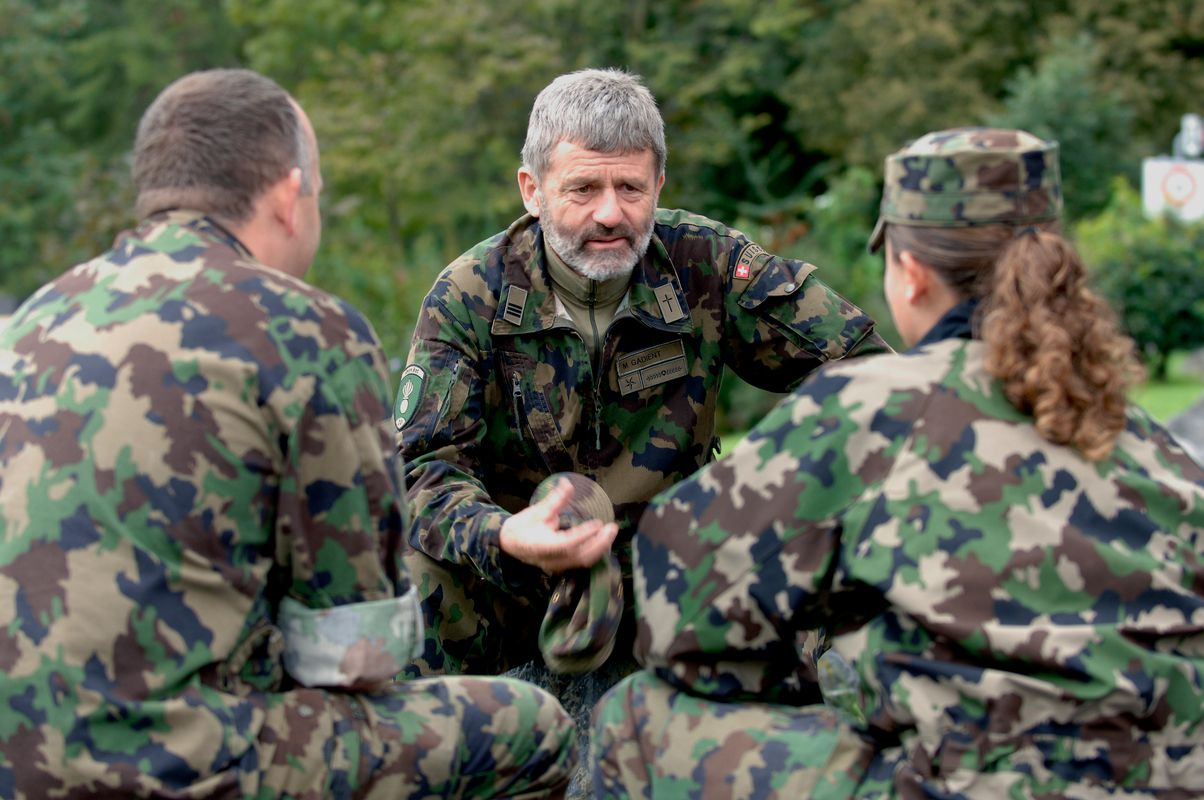
To support the troops, army chaplains are increasing the scope of their operations. To deal with the stress of the pandemic, they are now offering the army psychological help.
Last spring, the army mobilised its troops to support civilian authorities during the first wave of coronavirus pandemic. This was the first time since the Second World War that Swiss soldiers were deployed in this way. A new support mission – this time essentially made up of volunteers – is under way until the end of March to deal with the ongoing second wave.
The soldiers may not be carrying out complicated battle maneuvers but their new mission is not necessarily an easy one on a psychological level. In this context, the Army Chaplaincy has asked 35 chaplains to come on board. Currently five chaplains are available to those who need extra counselling.
“Imagine a young person who has to leave civilian life overnight ending up in a hospital having to care for the dying. For example, I recently met a 21-year-old soldier whose job was to prevent a patient from pulling out his medical tubes. It’s psychologically exhausting,” said Captain Stefan Junger, head of the Army Chaplaincy.
Accompanying the dying is certainly an extreme case. But the simple fact of being mobilised and having to put one’s civilian life on hold can generate anxiety. Moreover, there is also the feeling of confinement due to restrictions on movement. In order to limit the risk of infection as much as possible, outings and leave have been severely restricted or even eliminated among the soldiers in recent months.
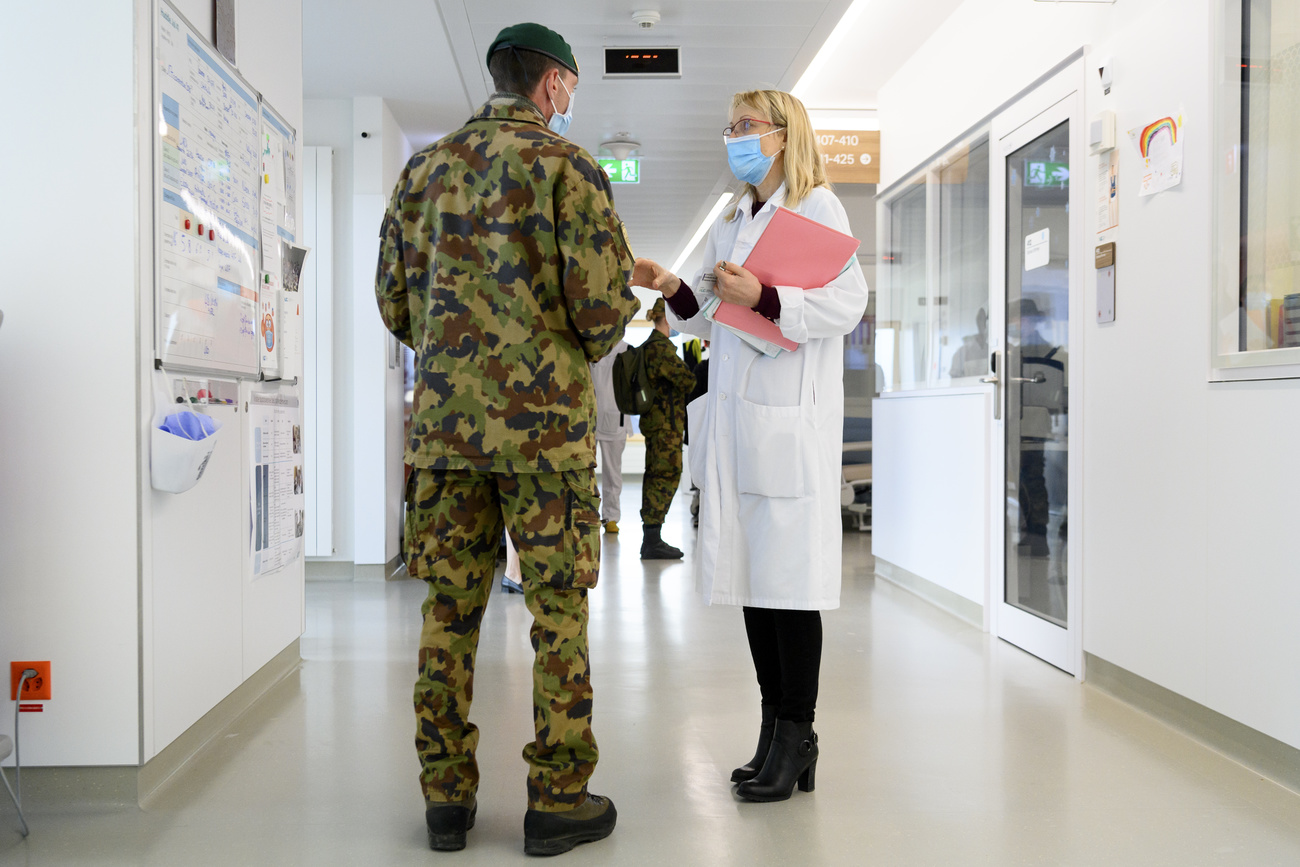
I am listening
“The experience has been quite good,” said Captain Junger. “The soldiers involved in the civilian support operation were happy to have a stable and easy to contact person at their disposal. Sometimes it was just a matter of playing cards with them.”
The army has two other services to support the troops: a psychoeducational service and a social service.
So why turn to chaplains if you’re in trouble or just feeling blue?
“The special feature of the chaplaincy is that it is directly accessible in the field,” said Junger.
With this new ethos of personal assistance, the role of the Chaplaincy has changed.
“It used to be the Church in the army. Today it’s about being close to the military, sharing their daily life,” explained Junger.
In such a context, there is no room for proselytism or sectarianism. The principles of the Army Chaplaincy are clear: “As a public institution, the military does not distinguish between military personnel on the basis of their religious, ecclesiastical, denominational, or convictional affiliation. The military therefore requires the chaplaincy to direct its activities to all members of the military, without distinction of any kind.”
“If a person needs spiritual support, we do it, but it’s not the primary mission,” Junger added.
Chaplains have accompanied troops since the early days of the Swiss Confederation. A famous example is reformer Ulrich Zwingli who was present at the historic battle of Marignano (1515).
In the modern Swiss state, the position of chaplain was created in 1874. Originally intended for wartime, the position was extended to peacetime training in 1883.
Currently, the army chaplaincy requires a pool of around 170 chaplains. Between 30 and 40 new ones are integrated every two years.
As volunteers, they are proposed by churches or religious communities that have partnered with the army chaplaincy.
Candidates must have theological competence in their own faith, as well as personal, social and communication skills.
The chaplaincy has also been open to women for the past 20 years.
Open to all religions
Most armies around the world have a chaplaincy service. Generally, chaplains are hired to deal with troops of their own religious denomination. In this way, military chaplaincies strive to meet the needs of soldiers of different faiths within their ranks.
For example, the French army established a Muslim chaplaincy in 2006. And in the same year, an Orthodox priest from the Moscow Patriarchate was seconded to the Foreign Legion for one month a year. As for the German army, it has just reintroduced rabbis to look after its 50 to 300 soldiers of the Jewish faith.
In Switzerland, military chaplaincy traditionally collaborates with the Protestant, Roman Catholic and Old Catholic churches. Since last November, this collaboration has been extended to the Evangelical churches too.
For the time being, the Swiss army does not (yet) have any non-Christian chaplains.
In Switzerland, military service is compulsory for men and voluntary for women. After an initial training of about four months (recruit school), soldiers are obliged to participate in training exercises every year until they have completed a total of 245 days of service (280 for elite troops). The length of service is longer for commissioned officers; for example, 680 days for junior officers.
A minority of the conscripts (15% of the force and only certain units) are able to perform their entire service in a single tranche of 300 days. The army also has a small number of professionals (about 3,600) for supervision, training or special tasks.
This system ensures that Switzerland always has a certain number of soldiers ready for deployment. The last census, carried out in 2019, recorded 140,304 potential soldiers.
The government may deploy the military for other services when civilian means are no longer sufficient. During the first wave of the pandemic, in the spring of 2020, just over 2,000 military personnel were mobilised to assist the civilian authorities.
There was no mobilisation for the second phase of assistance, which began in November and is expected to terminate at the end of March. In addition to 700 soldiers on normal service, the army was able to count on 350 volunteers. There are (as of early February) still 83 soldiers on assistance duty. So far, approximately 33,000 working days have been completed within the framework of the 2nd CORONA mission.
Text adapted from French by Anand Chandrasekhar

In compliance with the JTI standards
More: SWI swissinfo.ch certified by the Journalism Trust Initiative




















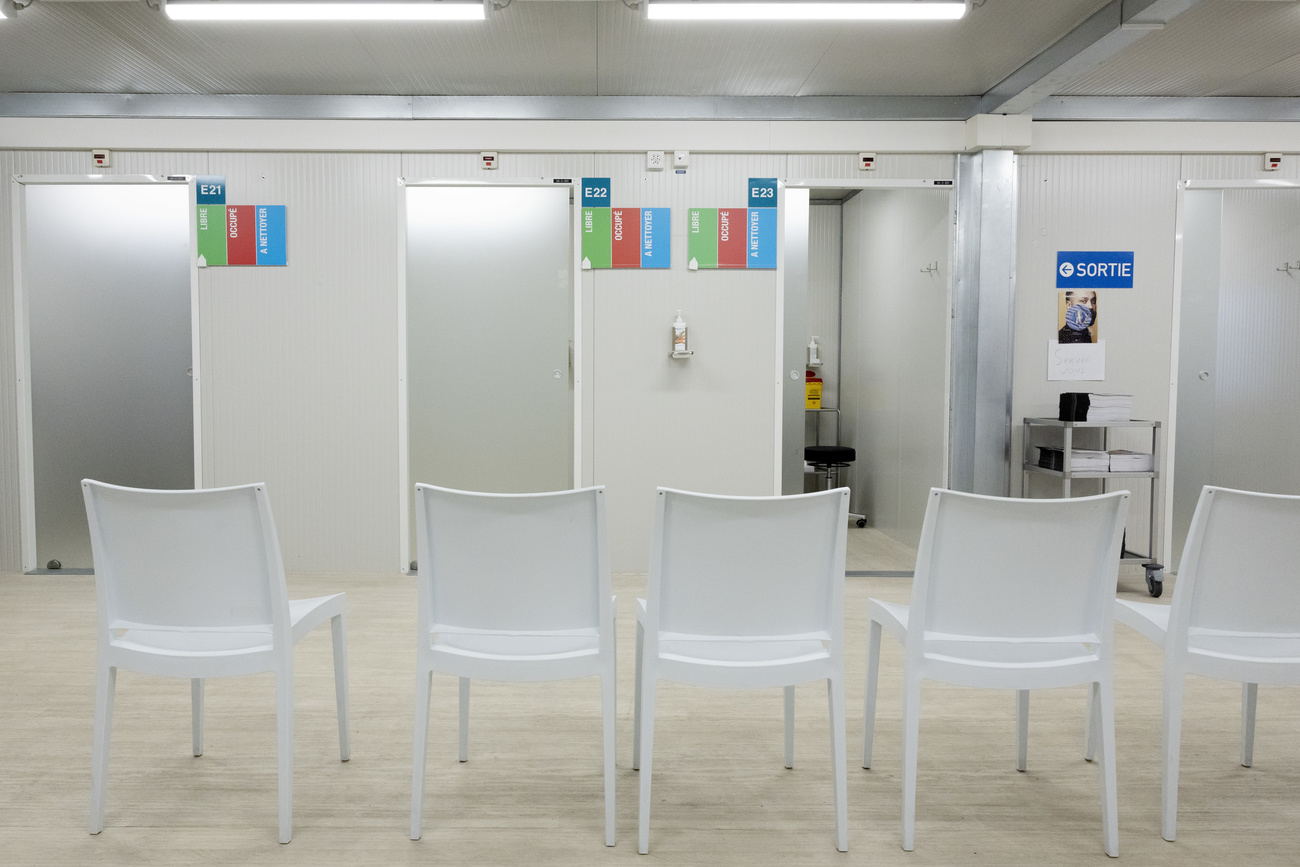


















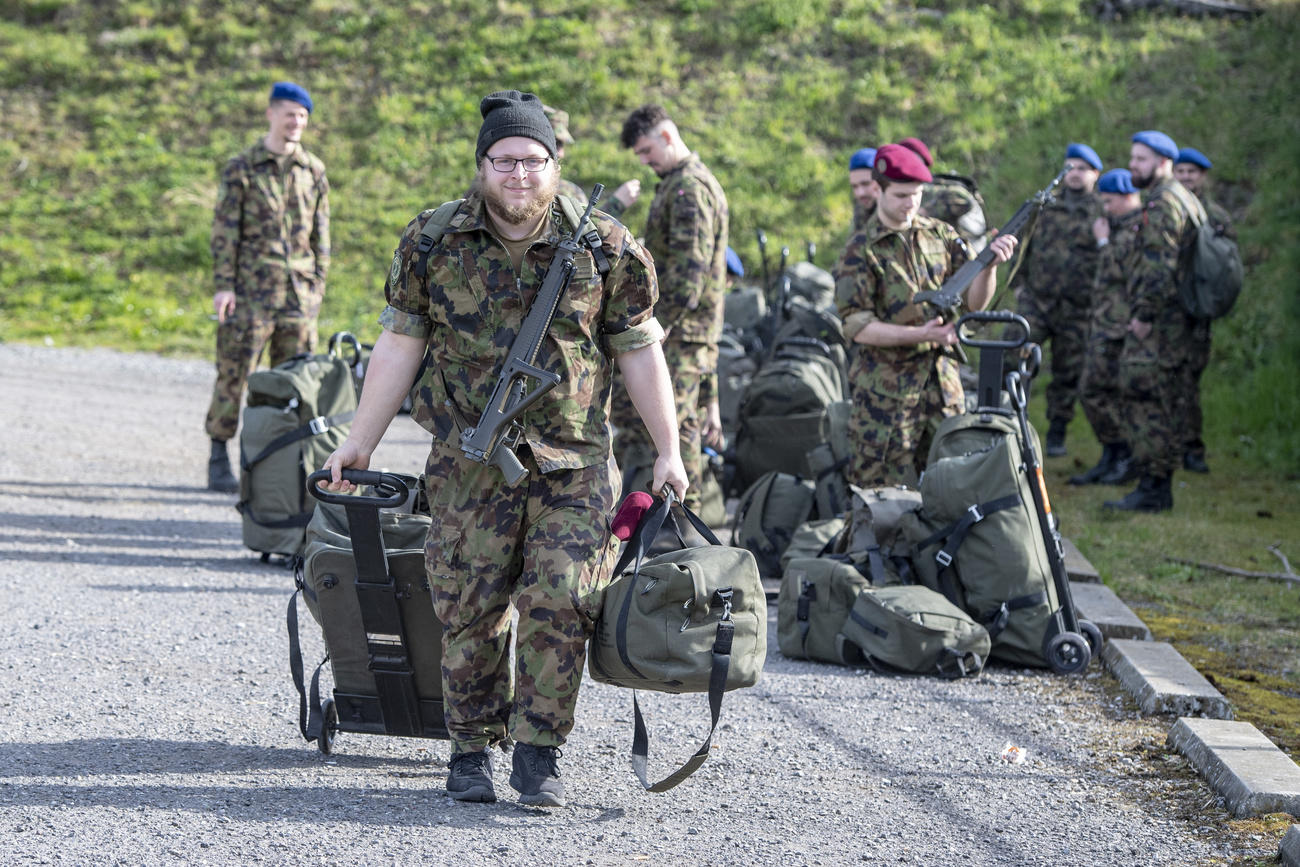
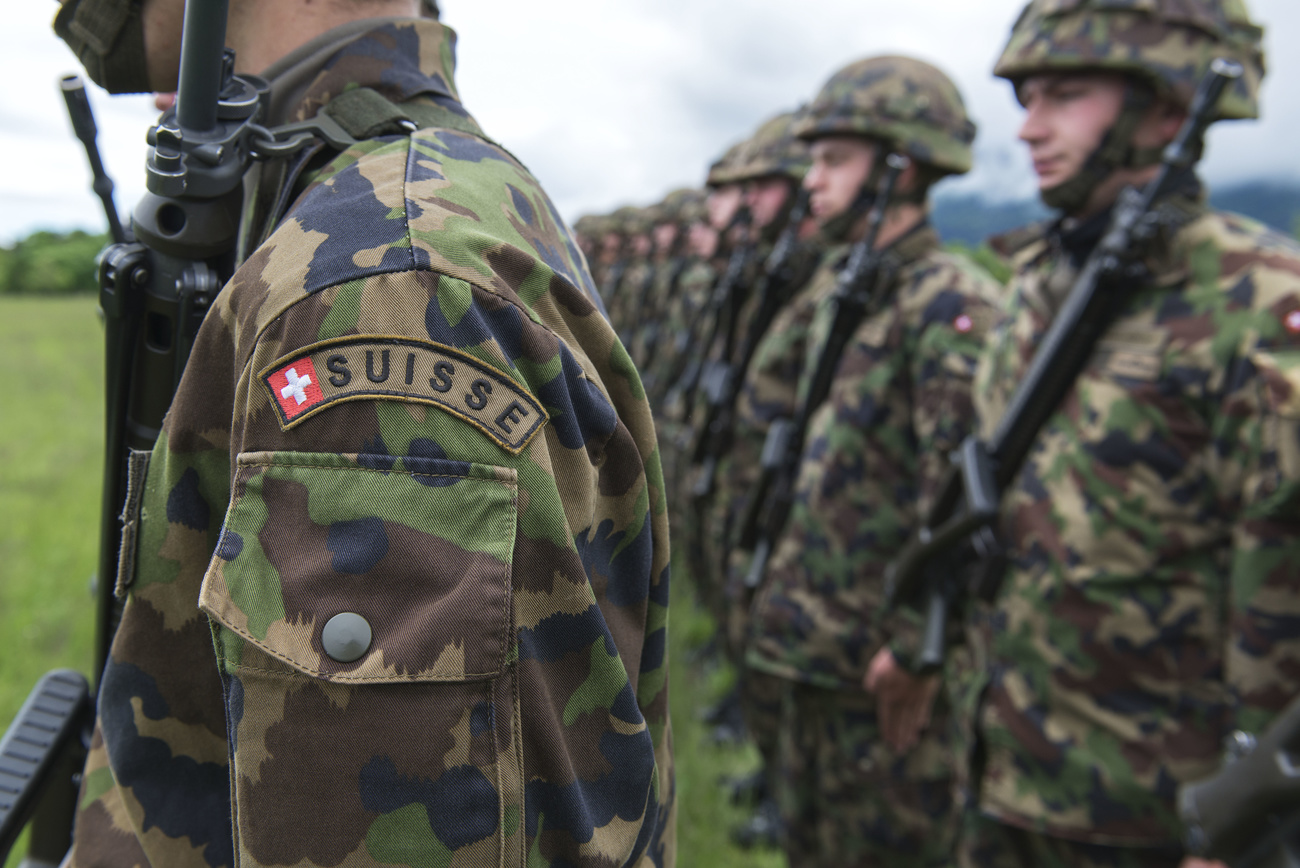
Join the conversation!